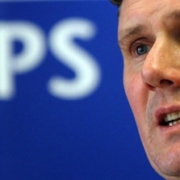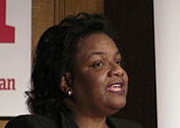Abortion counselling vote: a defeat but not a loss
 Just like the heated debate prior to the vote in Parliament this week on counselling before abortion, the public debate after the vote has been dominated by controversies, claims and counter claims. However, in all of this debate, there has been little coverage of the concern that most people do agree on, that access to counselling for vulnerable women with an unplanned pregnancy is essential, so that every woman is able to come to a genuinely informed choice based on accurate, impartial and comprehensive information on all the options open to her. How and who carries out this counseling is currently up for debate, but we must not lose sight of the basic need for this to be available and on that, most are agreed.
Just like the heated debate prior to the vote in Parliament this week on counselling before abortion, the public debate after the vote has been dominated by controversies, claims and counter claims. However, in all of this debate, there has been little coverage of the concern that most people do agree on, that access to counselling for vulnerable women with an unplanned pregnancy is essential, so that every woman is able to come to a genuinely informed choice based on accurate, impartial and comprehensive information on all the options open to her. How and who carries out this counseling is currently up for debate, but we must not lose sight of the basic need for this to be available and on that, most are agreed.
There has certainly been some interesting analysis of the debate itself, and the vote. MPs, Nadine Dorries and Frank Field, tabled an amendment to the Health and Social Care Bill to ensure that women considering abortion have access to counselling that is independent of abortion providers. The amendment was lost in a vote, by 250 votes (118 for and 368 against). Field himself voted against his own amendment, as did most Cabinet members. David Cameron also expressed his opposition to the amendment in the week prior to the debate. Unsurprisingly, the pro-abortion groups immediately hailed the result as the ‘biggest ever majority’ in favour of abortion rights in the Commons.
However the outcome is not as straightforward as it first appears. Although the actual vote was indeed lost, some significant concessions were made by government prior to, and during the debate, acknowledging the need to address the whole area of counselling and stating their intention to: “…ensure that the independent counselling offered to women follows the highest standards of good practice.” Most importantly, Anne Milton, Health Minister, said: “the Government support the spirit of the amendments, and we intend to present proposals for regulations after consultation.” She explained that primary legislation “…would deprive Parliament of the opportunity to consider the detail of how the service will develop and evolve.”. So although Field voted against his own amendment, he actually claimed that Ministers had already ‘conceded everything we wanted’.
We can therefore now welcome the unique prospect of a public consultation on abortion. While of course we need to see how this evolves in practice, we look forward to the opportunity to contribute to this process. The Minister rightly highlighted the need to work through what independent counselling means in practice.
It was also encouraging that the amendment had the support of three cabinet ministers – work and pensions secretary Iain Duncan Smith, defence secretary Liam Fox, and Northern Ireland secretary Owen Paterson. And of course 118 MPs did vote in favour of the amendment.
Despite the natural focus in the media on the amendment itself, and the consequent vote in Parliament, the whole issue of pregnancy counselling – what it covers, who provides it and the unmet need for it – has at last begun to receive the wider and deeper coverage that it deserves. It has provided CMF and others with the opportunity to inform the debate on the need for counselling (see for example politics.co.uk, the Daily Mirror and CMF Blog) and to highlight the growing evidence on the adverse effects of abortion on women. Last week the British Journal of Psychiatry published research findings showing that women who have an abortion face nearly double the risk of mental health problems compared to women who deliver after pregnancy. It also found 10% of all mental health problems are directly linked to abortion (see our previous blog on this).
While we do not suggest that all women suffer mental health problems post-abortion, women have a right to be told of the risks they might well face. The more that the issue is aired in public, the more likely it is that women will hear of and – we hope – access impartial and informed (and free) counselling when they need it from national networks such as Care Confidential.












Leave a Reply
Want to join the discussion?Feel free to contribute!